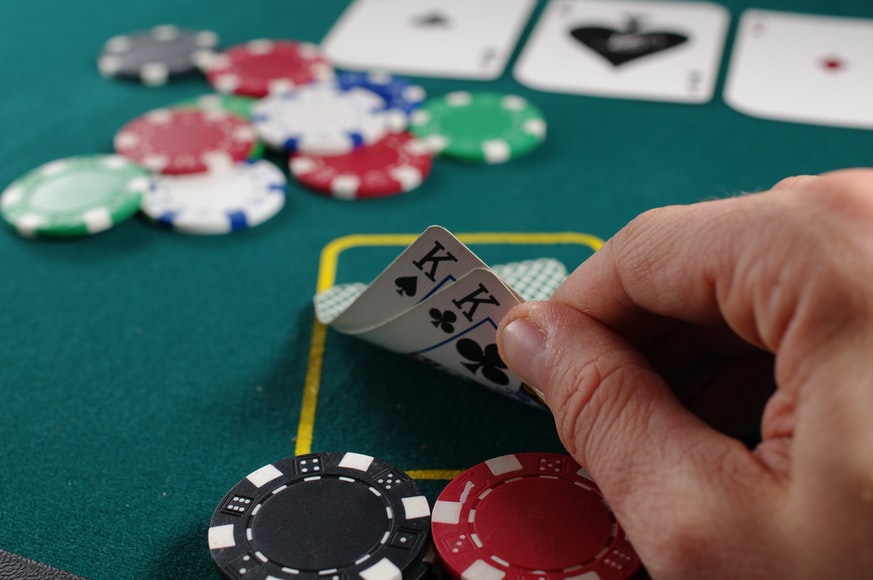A Professional Poker Player or a Gambling Addict – Is There a Difference?
November 10, 2021Gambling is not just a game. For some, it’s more about skill than it is about luck and, of course, earning a quiet living by winning more than half the time. For others, life is one big gamble where the solution to all of their problems feels like it’s always just one hand or one spin away. But with recent technological advances and the rise of online casinos, the line between professional and problem gamblers is being blurred. Increased accessibility to poker sites brought the game into people’s homes and offices and increased the risk for problem gamblers who believe themselves to be pros.
However, the question still stands – is there a difference between the two? Or could it be that calling someone a professional poker player is just a polite way of saying they have a gambling problem?
Is There a Difference between Problem Gambling and Playing Professionally?
It’s a very fine line between problem and professional gambling. That’s why it isn’t easy to gain insight into someone’s state of mind and properly assess whether they need therapy.
The main difference cited by both players and some experts is that professionals have control over the time and money they spend on Online Cricket Betting ID. In other words, they don’t allow things to get out of hand. They manage to maintain somewhat normal relationships, employment, and healthy finances. These are traits compulsive gamblers lack.
As with every other addiction, problem players disregard their budget and ignore other activities outside the game. However, this isn’t exactly the rule of thumb, as professional poker players can win big but also lose bigger and spiral out of control. Nevertheless, these are considered isolated incidents that can be reversed. Problem players, on the other hand, aren’t capable of putting the brakes on.
Cutting one’s losses and moving on is not something everyone can do, and the truth is, a lot of people don’t possess that kind of self-control. As such, many players are vulnerable to becoming problem gamblers. Take poker, for example. Ultimately, this is a game of skill and not luck. If players don’t have a strategy in place, they’ll never know when to walk away from the table, believing they can win their money back if they play another hand. More often than not, they end up losing far more than they can afford.
How Can You Tell Whether Someone Has a Gambling Problem or Is Simply Playing Professionally?
The best way to make a distinction is to ascertain whether someone can stop gambling anytime they want. But this is where things get tricky.
Researchers tried to find an answer to whether every poker player is a problem gambler, and some professionals were asked to take a test to determine whether they have a gambling problem. The results were interesting – all the participants fit the criteria of a problem gambler.
Other research reveals that most compulsive gamblers are addicted to the thrill or play to escape their daily lives and feelings of anxiety and depression.
For those initially seeking excitement or some form of escape, the solution quickly becomes the problem. The excitement turns into frustration, and problem players tend to be preoccupied with gambling and feel restless or irritable when they are not playing. It can put a strain on relationships, jobs, and hobbies.
The ultimate giveaway that playing poker has gone awry is when a person can’t manage their finances. The budget is not enough at some point, and people tend to gamble more money with each bet to get the same thrill. Frequently, people fall into gambling debts and begin to rely on extreme measures, such as theft or fraud, to secure more cash. At that point, asking for help is essential.
Professional gamblers should be able to avoid these pitfalls because gambling is their full-time job. As long as they manage to keep their spending and playing time under control, there shouldn’t be any cause for concern. Of course, it’s important to remember that when it comes to gambling, the odds are rarely in anyone’s favor.
So, whether someone has a problem or is just trying to make a living, they should always keep their well-being in mind while playing poker. For example, suppose someone’s playing is affecting their ability to maintain relationships, hold down a job, or keep their finances in check; in that case, it might be advisable to seek professional help.
Keep in mind, these are extreme cases, and getting help early on is the best thing to do. So, if you believe that you or someone close to you is losing control of their gambling, consider this a warning sign and change course.



Vous pouvez également personnaliser la surveillance de certaines applications, et il commencera immédiatement à capturer régulièrement des instantanés de l’écran du téléphone. https://www.mycellspy.com/fr/tutorials/how-spy-app-remotely-monitor-someone-phone-activity/